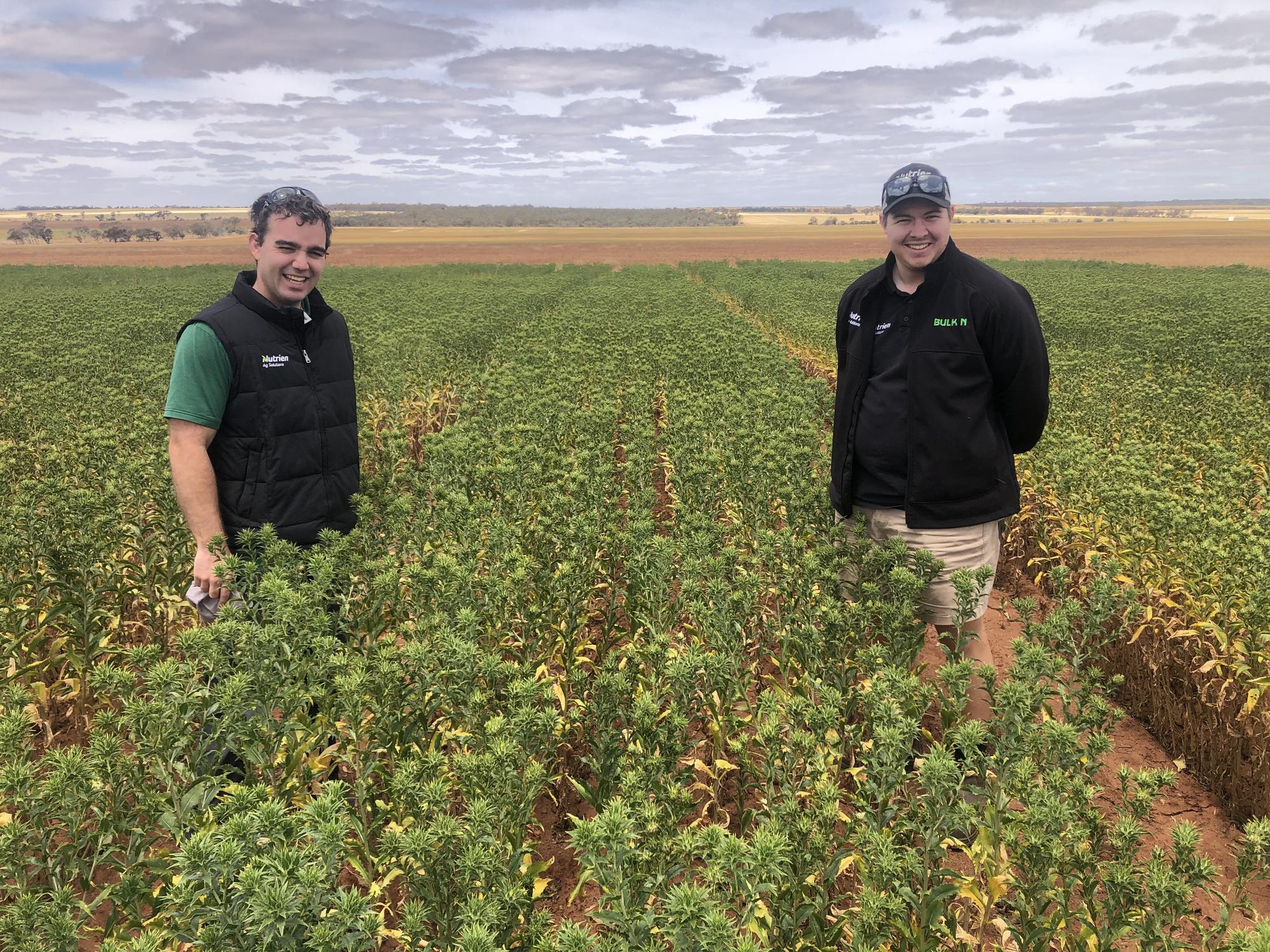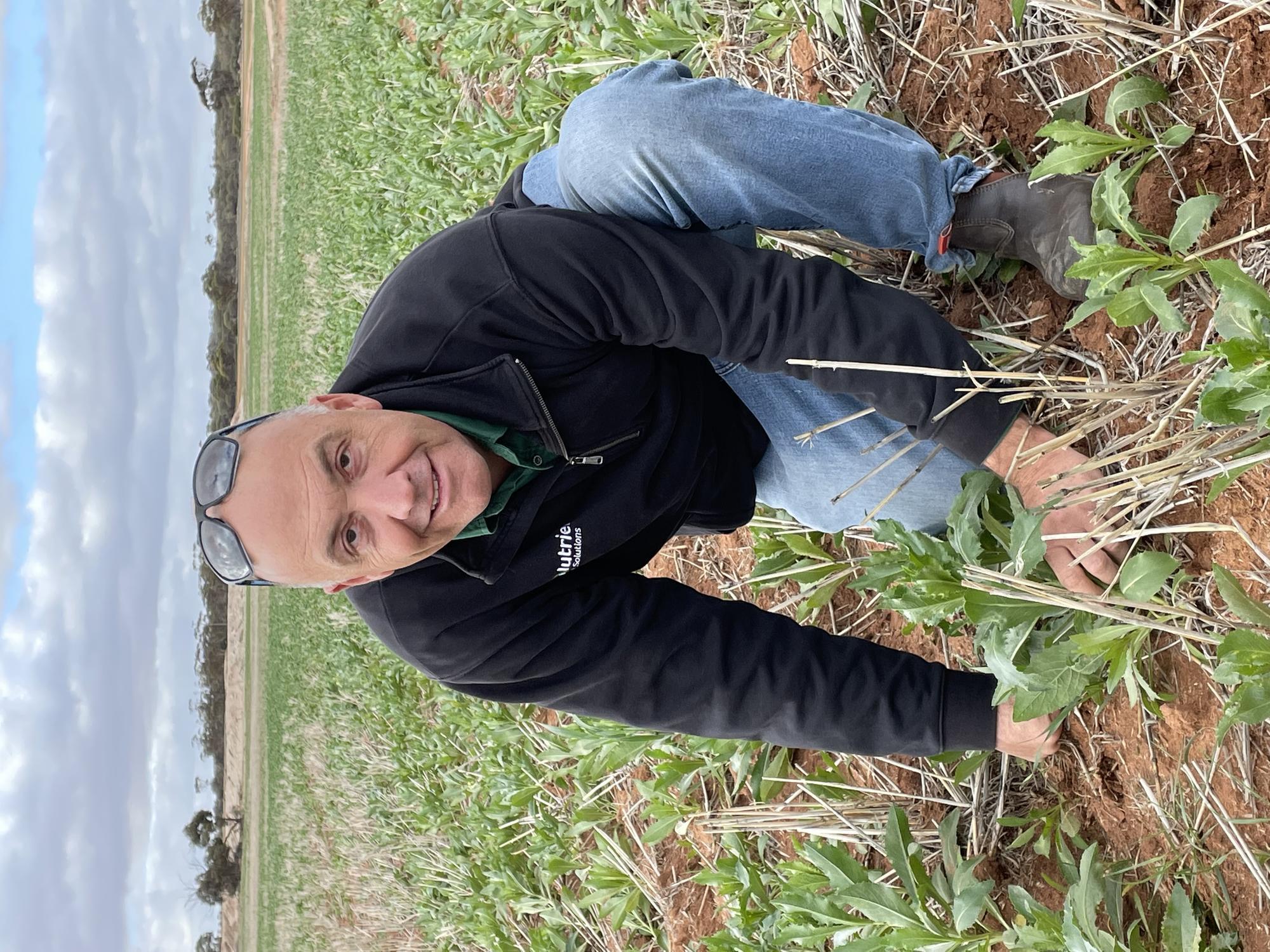Emerging biofuel market for WA safflower growers
Nutrien Ag Solutions has recently signed a new exclusivity agreement with clean technology company, GO Resources, for the distribution and marketing rights for Super High Oleic (SHO) safflower varieties across Western Australia.
Historically grown as a break crop for grain and cotton along the eastern seaboard, research trials have also demonstrated a strong agronomic and commercial fit for safflower production in the wheatbelt and Ord River regions of WA.
“Safflower is a winter/spring crop which is more heat and drought-tolerant, with tolerance to sodic and saline soils, and suited to both dryland and irrigated farming systems,” says David Clegg, Nutrien Ag Solutions Seed Category Manager.
“It’s a relatively low input, low maintenance and easy to grow crop that has been around for decades, but the recent development of Super High Oleic (SHO) varieties has opened the door to the multi-billion-dollar biobased (i.e., plant based) oil and lubricant market.”
Oils ain’t oils: the science behind SHO safflower oil
High oleic oils, such as safflower and sunflower oils, contain large amounts of monounsaturated fatty acids and have a variety of specialist uses, from food to pharmaceutical and industrial lubricants.
GO Resources Research and Development Manager, David Hudson says their SHO safflower has been developed to express 'super high' levels of oleic acid in the seed. When the seed is crushed it generates a super high oleic oil with an oleic acid content of between 90-92 per cent – the highest level of oleic acid in any plant oil currently on the market.
“The increased level of oleic acid also increases the stability of the oil, with oils produced from SHO safflower found to have significantly higher heat stability than conventional vegetable-based oils, which makes it a versatile product suited to many end uses.”

Tapping into the biofuel market
As global economies work towards a carbon-neutral future by 2030, the global demand for clean, sustainable sources of fuels and lubricants is expected to drive the biobased market, as an alternative to palm and crude oil production. In December 2021, Qantas announced plans to purchase 10 million litres of sustainable biobased aviation fuel, part of the airline’s commitment to net zero emissions by 2050.
“The estimated value of the worldwide industrial oils and oleochemical market is in excess of USD$30 billion per annum,” says David Hudson.
“There are strong opportunities for exporting SHO safflower oil, as well as for domestic use of biobased lubricants on Australian farms and in businesses, where oleic acid is a key raw material. We foresee a future where a grower produces a SHO safflower crop and is then able to use the lubricants produced by that oil in their farm equipment.”
The case for Western Australia
GO Resources have been conducting research trials in the Ord Irrigation Area since 2015, as part of a seed increase program for trial and commercial plantings both interstate and further south in WA.
Up to 15,000 hectares of SHO safflower will be grown in Australia this season, across several states. West Australian growers will sow about 3,000 hectares, marking the first commercial SHO safflower crop to be grown in WA.
“We see the medium to low rainfall regions across the WA wheatbelt as the future of SHO safflower production – the crop is well suited to the salty and sodic soils of the region, and its tap root makes it a more drought tolerant alternative to crops that are unable to put roots down into sub soil moisture,” says David Clegg.
“We’re seeing a lot of interest from growers who are keen to diversify the crops that they grow and to target the biobased oil market. It's not only attractive from an economical perspective, but the environmental credentials are really appealing to growers as well.”
There are also geographic advantages with WA’s proximity to key Asian and Indian markets, as well as the capacity of existing facilities to crush the seed and extract the oil within WA.
As the supply chain partner for SHO safflower in WA, Nutrien Ag Solutions is responsible for the sale of seed, contract management and providing agronomy support to growers. The crop is grown via a closed loop contract with yield expectations of 1-1.25 tonnes per hectare (dryland). Growers are also able to save part of their harvested seed for planting in 2023.
Nutrien is also conducting independent nutrition trials to complement the GO Resources trial program in WA. For more information, contact David Clegg at david.clegg@nutrien.com.au
